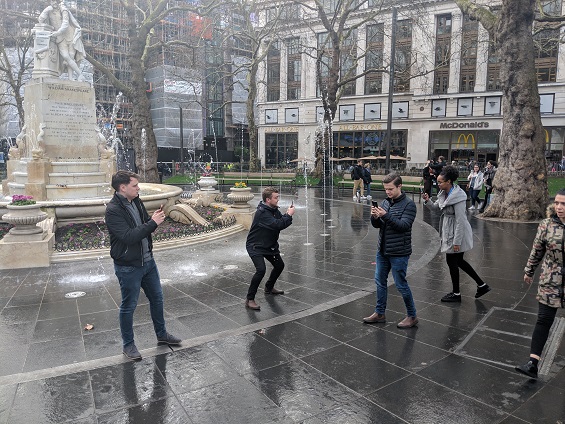UK’s top 10 university campuses for (virtual) fighting revealed
Ground-breaking augmented reality (AR) mobile combat game Reality Clash is seeing students roam campuses to defend territory and go into combat with their friends in real-time virtual battlegrounds.
The gaming world is constantly coming up with new ways to appeal to people who want to delve into another reality, whether it is finding the best Roblox GUI scripts or playing an AR game that gets gamers out of their seats and into a real-world simulation, there is so much gamers can do to have fun whilst on their phones or at their computer.
The game, from UK-based publisher Reality Gaming Group, is set in an underground world of cryptocurrencies and hackers, integrating geo-location technology and the latest AR Kit and AR Core technology from Apple and Google, enabling players to compete in FPS battles to first claim – and then defend – their local area.
It’s AR mobile gaming as never seen before, with players navigating a 3D map, mining at specific locations for resources, building or customising unique guns and, most importantly, engaging in virtual combat.
Reality Gaming Group recently activated a campaign to engage with Subtv’s audience of 1.2M 18-24 year-olds across TV, digital and mobile platforms, encompassing a network of 80+ sites/100+ venues in universities nationwide.

And now it has revealed the Top 10 UK university locations in which Reality Clash players have been skirmishing with each other and mining for resources:
- University of Birmingham
- University of Bournemouth
- University of Essex
- University of Nottingham
- University of Exeter
- University of Chester
- University of Teeside
- University of Portsmouth
- University of Central Lancashire
- Keele University
Not only does the data give an insight into how students are playing the game on campus, but it also highlights just how much they are getting ‘out and about’, subverting several clichés in the process.
For example, students at the University of Birmingham occupied an impressive 10 square kilometres in just one week in order to claim precious in-game territory – that’s a considerable step count.
Players can also head to on-campus ‘Safe Zones’ where they regain health and can take a break from the battle.
Reality Clash is in negotiations with large retailers and pub chains, which will become future Safe Zones in the map, potentially driving hundreds of gamers to a particular location.
“We were really interested to see how students are engaging with Reality Clash and the way that campus maps are being used for what has turned into a very interesting sub-set of national playing habits,” said Reality Gaming Group Co-Founder Tony Pearce. “We’ve seen similar gameplay patterns for students in overseas territories, which we look forward to sharing soon.”
